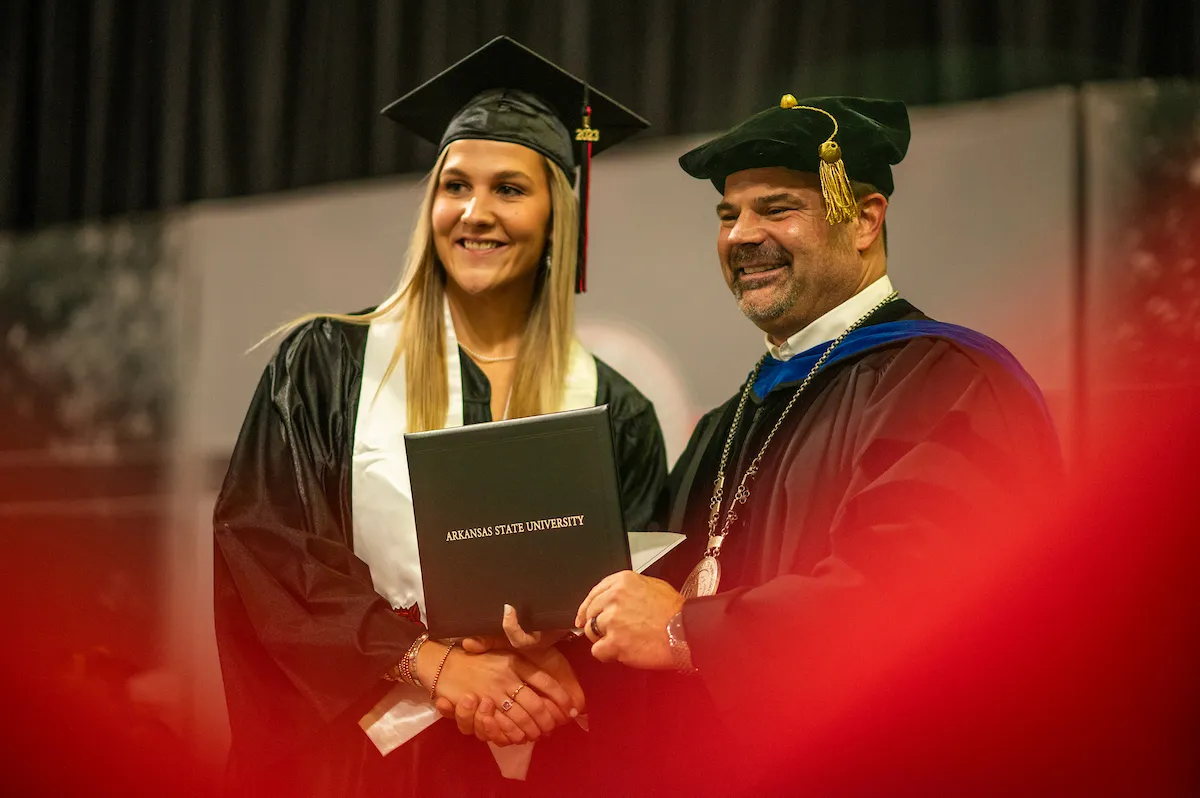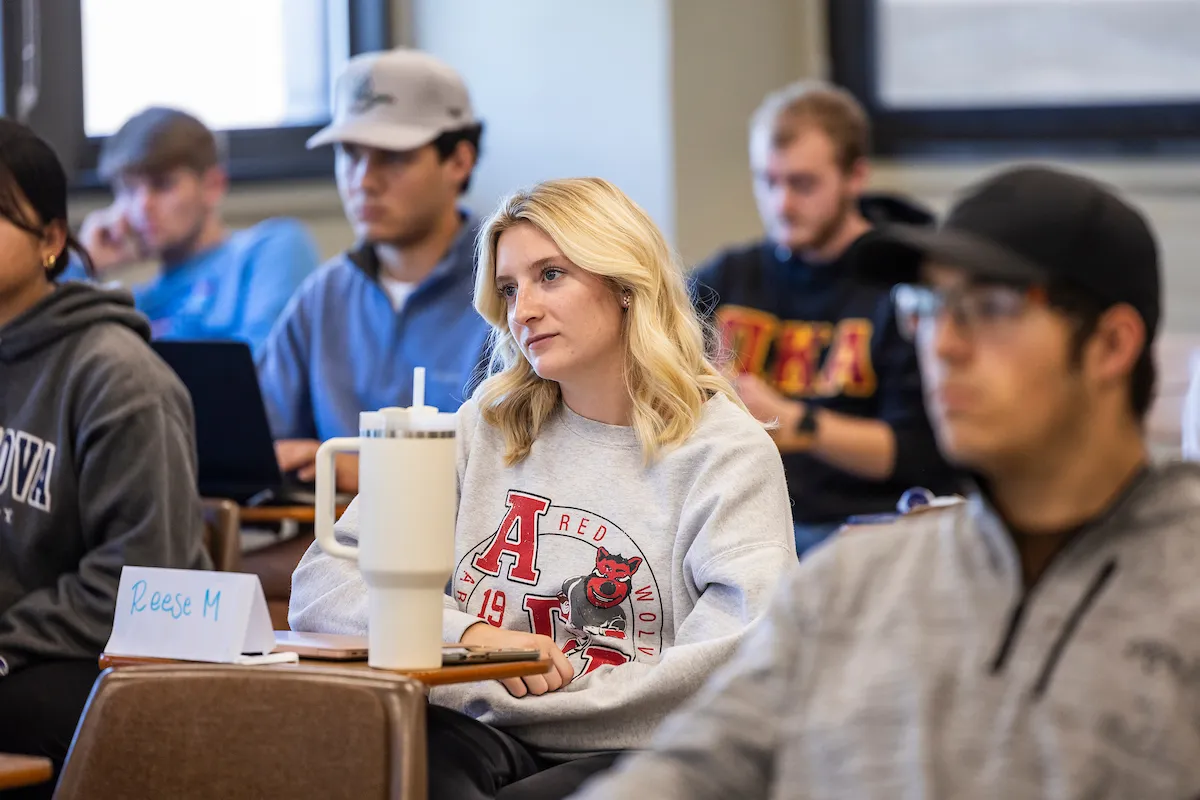Academic Admission Requirements
a strong foundational knowledge
Our goal is for every individual admitted to the Doctor of Veterinary Medicine (DVM)
program to successfully complete the academically rigorous, competency-based veterinary
professional program. The information below outlines the academic requirements to help prospective applicants develop a strong foundational knowledge that they
will build upon within the DVM program.
All applicants are required to complete the required prerequisite and elective coursework
prior to starting the DVM program. If coursework has been repeated within the past
six years, the grades will be averaged. The coursework may be in-progress during
the application cycle but must be completed with a grade of C- or better prior to
July 15th of the admission year.
The A-State CVM offers multiple pathways to help you achieve your dream of becoming
a veterinarian. Whether you’re completing your bachelor’s degree before entering the
program, pursuing an accelerated “3 + 4” option, or meeting prerequisites through
another route, A-State provides flexible entry options designed to fit your academic
journey and career goals.
Bachelor's Degree
Entry Route One
If you're planning to complete your bachelor’s degree before entering veterinary school,
this route is designed for you. You may pursue any bachelor’s degree—at A‑State or
elsewhere—as long as you meet DVM admission requirements.
Learn More
A "3 + 4" Program
Entry Route Two
A-State offers a “3 + 4” program, where you can complete your baccalaureate Animal
Science or Biological Science degree program at A-State during your Doctor of Veterinary
Medicine (DVM) professional program.
Learn More
Prerequisites Only
Entry Route Three
This route is ideal for students who have completed all required prerequisite courses
but do not yet hold a bachelor’s degree or do not qualify for the “3 + 4” program.
It offers a path to enter the DVM program once prerequisite coursework is complete.
Learn More



